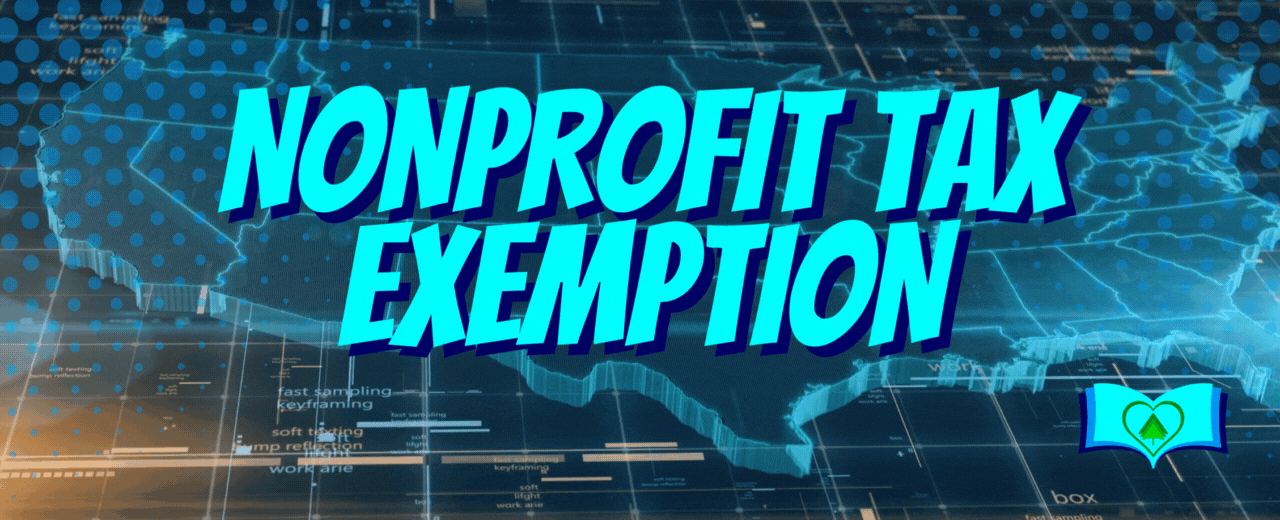Understanding Sales Tax Exemption for Nonprofits by State
Understanding sales tax exemptions for nonprofits doesn’t have to be complicated, though it can vary widely from state to state! In this blog, we’ll break down how different states manage sales tax exemptions for nonprofit organizations, especially those with a 501(c)(3) status. By getting familiar with these exemptions, nonprofits can make the most of their resources and keep operating costs as low as possible.
General Overview of Sales Tax Exemption
Sales tax is a consumption tax imposed by state and local governments on the sale of goods and services. Nonprofits, particularly those classified as 501(c)(3) organizations, are often presumed to be exempt from sales tax, but this is not universally true. Most states require nonprofits to obtain specific exemptions, and the process typically involves submitting documentation that proves their tax-exempt status.
In general, a 501(c)(3) designation is crucial for securing these exemptions, but additional steps may be necessary depending on the state. Some states offer blanket exemptions for all nonprofit organizations, while others have specific criteria that must be met.
Why Sales Tax Exemption Matters
For nonprofits, every dollar saved on taxes can be redirected toward fulfilling their mission. Sales tax exemptions can significantly impact budgets, especially for organizations that rely heavily on fundraising events or community support. Understanding the intricacies of these exemptions allows nonprofits to plan more effectively and allocate resources where they are needed most.
State-Specific Exemptions
Here’s a closer look at how various states approach sales tax exemptions for nonprofits:
California: In California, nonprofits must apply for a seller's permit and provide proof of their 501(c)(3) status. They can purchase items without paying sales tax if those items are used exclusively for charitable purposes. Additionally, California law allows certain types of fundraising activities to be exempt from sales tax if they meet specific criteria.
Texas: Texas requires nonprofits to apply for a sales tax exemption certificate and show their IRS determination letter. The exemption applies to purchases directly related to their exempt purpose. Nonprofits in Texas should also be aware that certain services may still be subject to sales tax, so it’s essential to review the specifics of what qualifies for exemption.
New York: Nonprofits in New York must obtain a Certificate of Exempt Use from the New York State Department of Taxation and Finance. This certificate allows them to purchase goods without paying sales tax if those goods are used in their exempt activities. New York also has specific rules regarding fundraising events; nonprofits should consult with legal counsel to ensure compliance.
Florida: In Florida, nonprofits are required to apply for a Florida Annual Resale Certificate for Sales Tax to claim exemption on purchases. This certificate must be renewed every five years. It's important to note that while the resale certificate allows nonprofits to make purchases without paying sales tax, it does not exempt them from collecting sales tax on items sold during fundraising events.
Maine: A significant gap exists in Maine, where most 501(c)(3) nonprofits are not exempt from sales tax. Advocacy efforts are ongoing to establish a blanket exemption for all charitable nonprofits in the state. Nonprofits operating in Maine should stay informed about legislative changes that may affect their tax status.
North Carolina: In North Carolina, nonprofits must pay sales tax upfront but can file for refunds semiannually on taxes paid on purchases related to their charitable activities. This process can be cumbersome, so organizations should keep detailed records of all purchases and taxes paid.
Illinois: Illinois offers a sales tax exemption for certain nonprofit organizations engaged in charitable activities. To qualify, organizations must apply for an exemption through the Illinois Department of Revenue and provide documentation demonstrating their charitable purpose.
Wisconsin: In Wisconsin, 501(c)(3) federally exempt nonprofits are generally exempt from sales tax but must obtain a Certificate of Exempt Status (CES). To acquire this certificate, organizations need to file Form S-103 along with a copy of their IRS determination letter, bylaws, Articles of Incorporation, and a statement of income and expenses from the most recent accounting period. The CES number helps retailers identify qualifying organizations that can make purchases exempt from Wisconsin sales and use tax. Importantly, Wisconsin does not issue CES numbers to out-of-state nonprofit organizations; however, these organizations can still claim an exemption when purchasing items in Wisconsin.
Documentation Requirements
To secure a sales tax exemption, nonprofits typically need to provide:
IRS Determination Letter: Proof of 501(c)(3) status is essential as it validates the organization’s nonprofit status.
Application Form: Most states have a specific form that outlines the organization’s purpose and activities; this form often requires detailed information about how the organization serves its community.
Financial Statements: Some states require financial statements or budgets that demonstrate operational status and how funds are allocated toward charitable activities.
Bylaws or Articles of Incorporation: Documents outlining the nonprofit's governance structure help establish its legitimacy and adherence to nonprofit regulations.
Sales Tax Exemption Certificate: Once approved, organizations will typically receive a certificate that must be presented at the time of purchase.
Multi-State Considerations
For nonprofits operating in multiple states, understanding each state's regulations is crucial. Some organizations may benefit from applying for a Multi-State Certificate of Exemption under the Streamlined Sales and Use Tax Agreement (SSUTA). This agreement simplifies compliance across participating states but does not eliminate the need for individual applications.
Nonprofits should also consider consulting with a tax professional who specializes in nonprofit law when operating across state lines. They can provide valuable insights into navigating varying regulations and ensuring compliance with both federal and state laws.
Common Challenges Nonprofits Face
Complexity of Regulations: The varying requirements across states can create confusion and lead to unintentional noncompliance.
Record-Keeping: Maintaining accurate records is vital for claiming exemptions and filing refunds; however, this can be resource-intensive.
Limited Awareness: Many smaller nonprofits may not be aware of their eligibility for sales tax exemptions or how to navigate the application process.
Changes in Legislation: States occasionally revise their laws regarding nonprofit taxation; staying informed about these changes is essential.
Conclusion
Sales tax exemptions can differ quite a bit from state to state, so it’s helpful for nonprofits to get familiar with their local rules. By understanding these exemptions, organizations can keep more funds focused on their mission.
Staying on top of tax rules helps nonprofits manage their finances more effectively and avoid unnecessary expenses. And for anyone unsure of where to start, working with a tax pro or legal advisor who knows nonprofit law can make the process smoother.
In the end, knowing the ins and outs of sales tax exemptions is about making every dollar count. Whether you’re a long-established organization or just starting out, a little effort here can lead to valuable savings—leaving more resources to serve your community!
Sources:
https://www.cogencyglobal.com/blog/sales-and-use-tax-exemptions-for-nonprofits
https://www.taxconnex.com/blog-/sales-tax-and-non-profits
https://www.zeffy.com/blog/nonprofit-sales-tax-exemption
https://www.harborcompliance.com/nonprofit-income-sales-use-tax-exemptions-by-state
https://www.taxjar.com/blog/nonprofits
https://www.wagenmakerlaw.com/blog/state-sales-tax-exemption-tax-exempt-organizations

